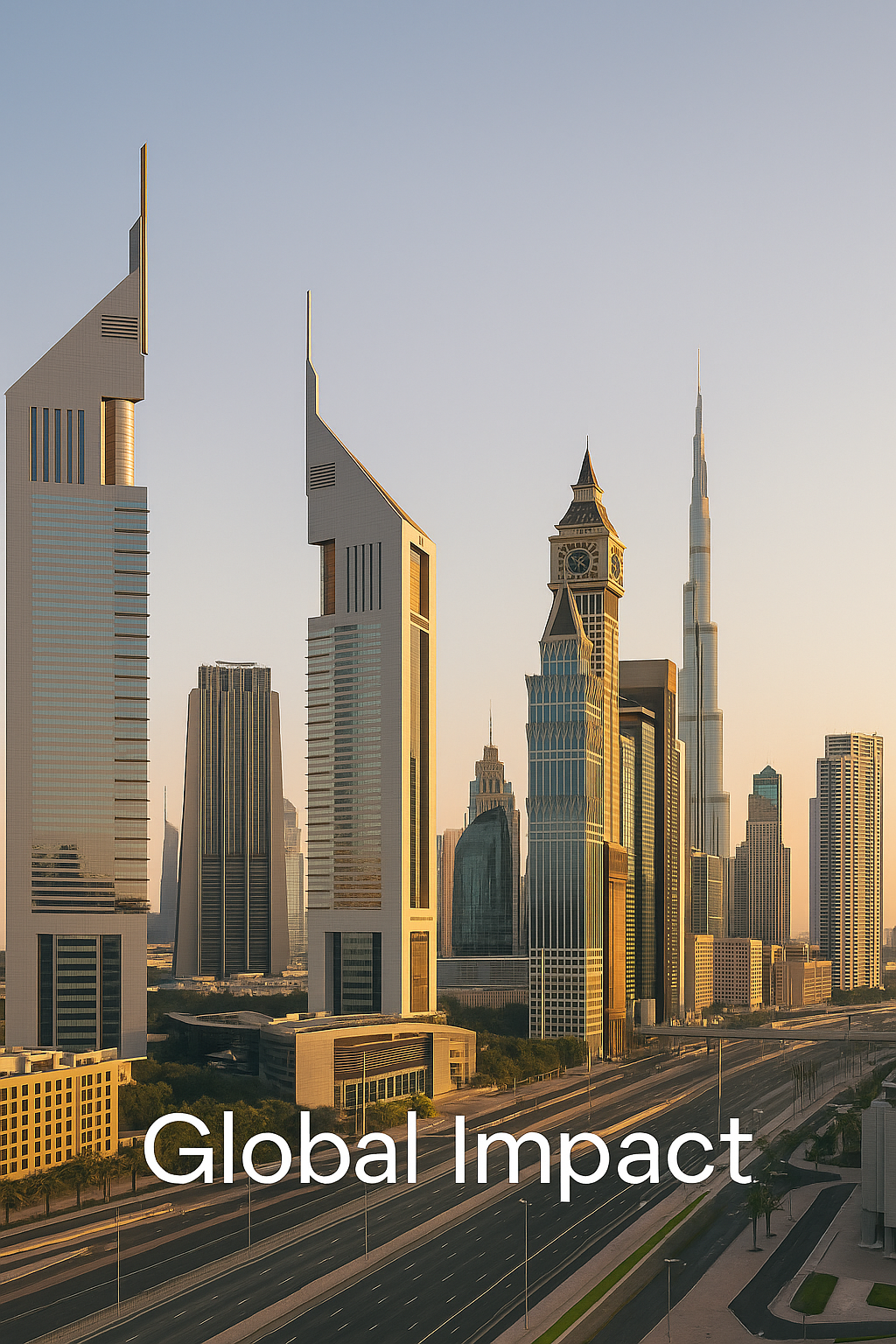
2025 isn’t an easy year to predict globally. Between interest rate hikes, inflation, oil price swings, currency drops, and geopolitical stress, investors are nervous everywhere. But here’s the reality: Dubai real estate is holding steady while a lot of major markets are slowing down.
That’s not luck. It’s the result of long-term positioning, strong fundamentals, and a very different investment model compared to the West.
Let’s break down what’s really happening, what matters, and how it’s affecting Dubai’s real estate scene right now.
Global Pressure — But Dubai Moves Different
While countries like the US, UK, Germany, and Canada are watching property markets freeze or even drop, Dubai is moving in a completely different direction.
Why? A few reasons:
- Most buyers here aren’t over-leveraged
- Over half of the deals are done in cash
- Developers here are offering flexible payment plans
- There’s no property tax, no capital gains tax, and the AED is stable
So when other countries raise rates or tighten credit, Dubai doesn’t get hit the same way.
Interest Rates and Dubai’s Advantage
Let’s start with rates. In the US or UK, mortgage rates are in the 6–7% range and still rising. That kills affordability and slows the market.
In Dubai, buyers have options:
- Most investors are cash buyers
- Off-plan developers offer 1% per month payment plans with no bank loan needed
- Mortgages, if used, are still more manageable (around 4–5.5%)
So while global buyers are struggling with access to credit, Dubai investors can still move with flexibility.
This keeps demand active, especially in off-plan and mid-range ready properties.
Oil Prices: Fueling More Than Just Cars
Oil prices affect real estate in Dubai more than people think. When oil stays above $80/barrel, there’s more confidence across the GCC. That means:
- Governments spend more
- Gulf investors feel wealthier and invest more regionally
- Liquidity moves into cities like Dubai
We’re already seeing more buyers from Saudi, Kuwait, and even Qatar entering Dubai’s residential market—especially in the AED 2M–5M range.
Inflation = Flight to Hard Assets
When inflation hits, people pull out of cash and look for something real. Stocks are volatile, bonds don’t keep up, and savings accounts barely break even.
So what’s left? Property.
But not just any market—investors are looking for:
- High yield (6–8%)
- Low taxation
- Currency stability
Dubai checks all three. That’s why family offices, crypto investors, and global expats are now considering units in JVC, Arjan, or Dubai Hills instead of just holding onto cash or foreign stocks.
Currency Shifts: Some Win, Some Pause
The AED is pegged to the USD. That helps some investors and hurts others.
Buyers from Europe are now finding better value as the USD weakens a bit. GCC buyers are naturally protected since they operate in pegged or similar currencies. But if you’re coming from India, Turkey, or Southeast Asia, the conversion cost is getting heavier.
Still, for many of them, the long-term rental income and golden visa eligibility justify the move—even with the FX hit.
Real Demand vs. Speculation
This isn’t 2008. The demand in Dubai today is different. It’s not based on flipping or hype. People are buying to:
- Move here
- Get the 10-year golden visa
- Protect wealth
- Generate rental income
Developers are adapting to this. Projects are getting smarter, with better layouts, green space, and more family focus. And because developers offer post-handover plans, even smaller investors can enter the game.
What’s Next?
Global pressures will continue. Interest rates won’t drop dramatically overnight. Inflation will stick around. And elections in major economies will keep markets shaky.
Dubai, on the other hand, is building, expanding, and preparing for another decade of growth. With the 2040 masterplan underway, new roads, schools, metros, and business districts are driving long-term value.
This isn’t hype. It’s infrastructure-backed growth.
Final Thought
Dubai is becoming the safe haven for smart money. When the rest of the world is unsure, serious investors are putting their capital in places where the fundamentals make sense.
Dubai is one of those places. Not just because it’s tax-friendly or beautiful—but because it’s structured for sustainable real estate investment.